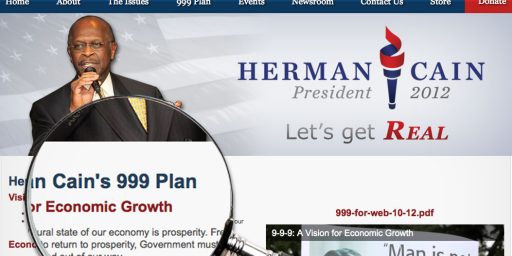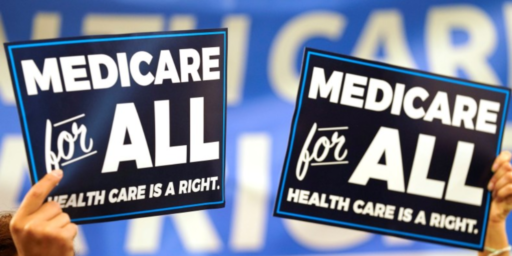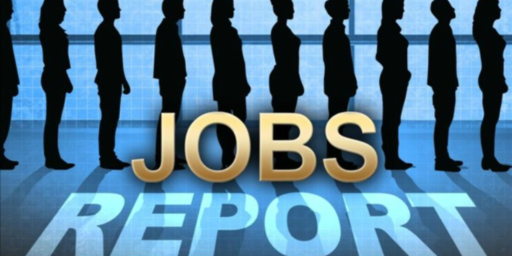PAYROLL TAX
Robert Walker thinks Carol Moseley Braun has stumbled upon a great idea:
In an effort to expand medical coverage to more Americans, she has proposed ”decoupling” the Medicare Hospital Insurance program from the payroll tax and using general revenues to finance federal health care expenditures.
It’s about time. America has become far too reliant on payroll taxes. The payroll tax is not just one of the most regressive of all federal taxes, it’s one of the largest. Four years ago, payroll taxes accounted for 32 percent of all federal revenues. This year, more than 40 percent of all federal revenues will be derived from payroll taxes. Right now, employees and employers together kick in a flat 15.3 percent of salaries to support Social Security and Medicare.
Because the payroll tax is taken directly out of the paycheck, most people are unaware of just how large the payroll tax burden has become. But in fact, four out of five households now pay more in payroll taxes than they do in federal income taxes!
Even worse, experts tell us that the Medicare payroll tax rate, currently 1.45 percent of payroll for employees and employers, would have to be raised by 70 percent to keep the Medicare trust fund solvent for the next 75 years.
Critics of the payroll tax charge that it’s regressive, that it heavily taxes the poor. But it’s also a job-killer because it artificially raises hiring costs. A tax on work is a tax on jobs, and today’s payroll tax is a major contributor to an unemployment crisis in America. The latest Labor Department statistics show not only that we have lost 2.7 million jobs since January 2001 — the worst job loss in 20 years — but that the biggest problem is lack of job creation as opposed to layoffs. Growing dependence on payroll taxation to finance Medicare and other entitlements is on a collision course with the urgent need to take the brakes off job growth.
The effect of payroll tax relief on job creation can be powerful. University of Texas economist Daniel Hamermesh estimates that cutting the payroll tax by 10 percentage points could, over the long-term, increase the number of American jobs by 10 percent. If at the same time payroll tax reductions were offset by new taxes on wasteful consumption of natural resources, like energy, the job-creating impact of a payroll tax could redouble.
***
Australia, Canada and several European nations, including Belgium, France and Germany, are seeking to cut payroll taxes to create more jobs. Brazil is actually abolishing its payroll tax and substituting a tax on corporate revenues. Some nations, including Germany, are experimenting with the idea of ”environmental tax shifting,” using proceeds from new energy and environmental taxes to finance payroll tax cuts.
Interesting. I haven’t read much about these “alternative” taxes and don’t know much about their impact. One would think that businesses would just pass along the costs to consumers in terms of higher prices, move overseas to escape them, or cut the work force to absorb the costs.






What about all the self-employed people whose numbers statistics say are on rise? Try paying that 15% all on your own. Also, the job creation business is a genuine problem. I haven’t seen my husband for a year other than to say, “Good-night” or “Good-bye” since he’s working so much overtime. His comapny could hire at least .65% of one worker for all the overtime he’s putting in. Put that across the board (since all the guys are working that much), and his company, a very small one, could hire a minimum of 5. They’d still keep everyone working 40 hour weeks with voluntary overtime on Saturdays and a couple nights a week for those who wanted it.
Yep, I’m one of those 15% payers, and what really bites is that I probably won’t see a penny of it.
American government has resolved to a ‘fix it only after it’s broke’ mentality. Unfortunately, all avenues of possibility are never explored because government is looking for immediate impact instead of future impact.
We have preventative medicine – why can’t we have preventative government?
I don’t see how taxing companies instead of individuals expands the economy. Economies expand with efficiency and innovation. When government spends money it’s usually sub-optimial in term of chasing innovation or efficienty, i.e. it’s spent wastefully.
Now it is the case that some companies spend money wastefully too. But in general, people are trying to make their money go as far as possible and companies are trying to maximize profit. So how is it that if we tax businesses instead of individuals we end up with economic stimulation?
—